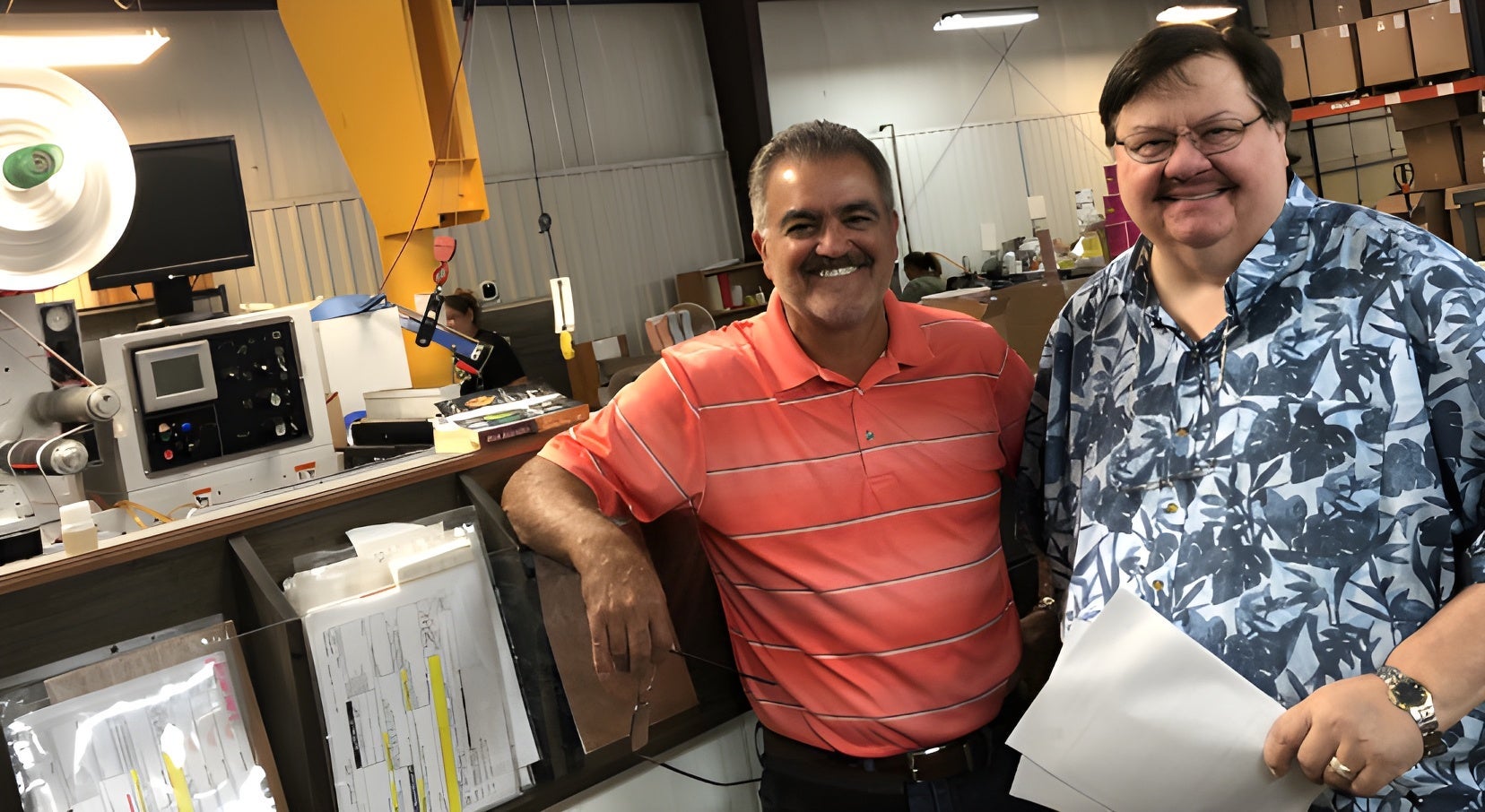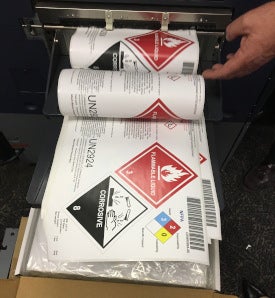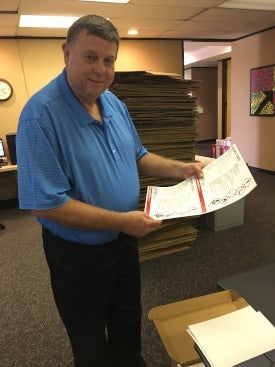A chemical drum label converter in Texas was experiencing productivity losses from static when printing polyester GHS labels on digital laser presses. With PPG TESLIN® label stock, the company was able to double its workload — and save $120,000 annually.
Summary
- Houston-based Gulf States Label prints for its direct customers and converts pressure-sensitive rolls into sheets for a large number of local printers.
- One of Gulf States Label’s largest customers, Print Systems, Inc, uses four Konica toner-based digital presses, producing close to 2 million sheets per year. Their core business is chemical drum labels that must be BS 5609-certified to meet IMDG and GHS compliance.
- Speed is critical to Print Systems as most of their orders are on-demand as they ship “anywhere in the world in two days or less.”
- Prior to discovering Teslin label stock, Print Systems used polyester label material, which caused significant static issues during printing. Considerable staff time was wasted separating sheets of labels.
- Teslin label stock dissipates static. This resolved Print System’s issue entirely and also reduces potential static discharge when removing label liners (which could potentially ignite chemical and solvent vapors in certain manufacturing environments).
- Print Systems was able to double their workload without increasing manpower and save $120,000 annually.
Challenge
It is estimated that there over $70 million dollars in label sales in the Houston area; yet with only a handful of converters in Texas’ largest city, most of that work has been sent out of Houston and the Texas state area. Gulf States Label, a mid-sized converter in the northwest section of the city, bucks against this trend and has been steadily growing its labeling business for the past 15 years. Today, Gulf States Label operates in a 17,500 square foot manufacturing facility, with six conventional Mark Andy presses, a Primera CX1200 digital press and custom cut abilities.

“We have no marketing or sales team. So we must rely on our quality reputation, continuous improvement and ability to find the right solutions to continue to keep growing our business. Teslin label stock was the ideal answer to a major issue facing one of our largest customers. We love this material - it prints beautifully and cuts better than polyester.”
Mike Williams and Bob Nicolosi, Gulf States Label Owners
Gulf States Label has achieved this growth without the benefit of a sales or marketing team. Co-owner Bob Nicolosi acknowledges that the small company must rely on “word-of-mouth, good service and great quality” to sustain its growth in the Lone Star State. Nicolosi understands the importance of quickly responding to challenges and bringing new solutions to his customers. Consequently, he spends a lot of time reviewing trade journals and meeting with label stock representatives to ensure that he is well-versed in available materials.
Gulf States Label converts rolls of pressure-sensitive (PS) material into 8.5” x 11” and 11” x 17” sheets for Print Systems, Inc, one of their largest customers. Print Systems then prints chemical drum labels that meet IMDG and GHS compliance standards.
Founded in 1992, and also located in Houston, Print Systems operates four Konica toner-based digital presses, and produces close to 2 million sheets per year. The oil and gas industry has become increasingly competitive over the past ten years, and Print Systems’ multinational chemical clients rely more and more on “just-in-time” inventories. Traditional printing methods and turn-around times cannot adjust quickly enough to keep these customers satisfied. Owner Bill Turo notes that, as a result, “Today, we print the vast majority of orders on-demand and ship anywhere in the world in two days or less.”
Prior to discovering Teslin label stock, Print Systems used polyester PS label material, which caused significant static issues as the sheets came out of the digital printer. Nicolosi emphasized with his customer’s challenge because “static had always been a problem with polyester. If a label is being sheeted and run through a conveyor or traditional stacker, there is always a possibility that static will be created as the sheets come into contact with one another.”
Considerable staff time was spent in separating clumps of label sheets, and in a business where every minute counts, Turo needed a solution to this challenge of wasted productivity.



